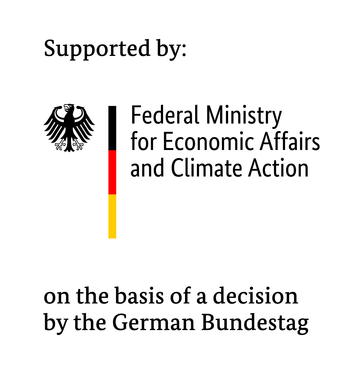You are here: Home / Research and Development
Characterisation of Superconductors in Hydrogen Atmosphere

Are superconductors really compatible with hydrogen?
In the context of the energy transition, the combined usage of cryogenic hydrogen and superconductors is discussed for numerous applications. So far, however, it has been barely clarified whether hydrogen-induced degradation in superconductors occurs and whether this leads to any limitations regarding possible implementations.
Therefore, the goal of this research project is the systematic investigation of the influence of hydrogen on the electrical and mechanical properties of common, commercially available superconducting cables and tapes (REBCO, BSCCO, MgB2). Based on the gained results, the general hydrogen compatibility of superconductors shall be evaluated and suitable approaches for a qualified estimation of the hydrogen compatibility of superconducting cables and tapes shall be derived.


















